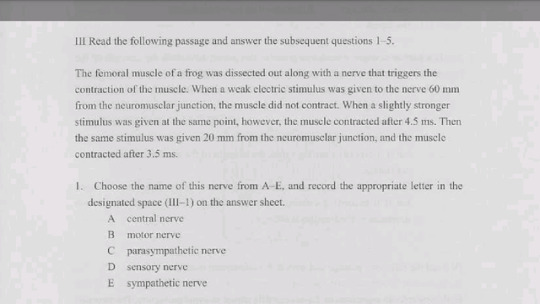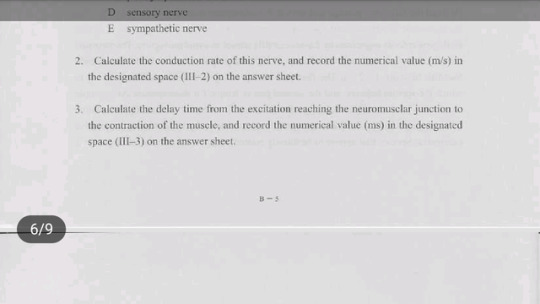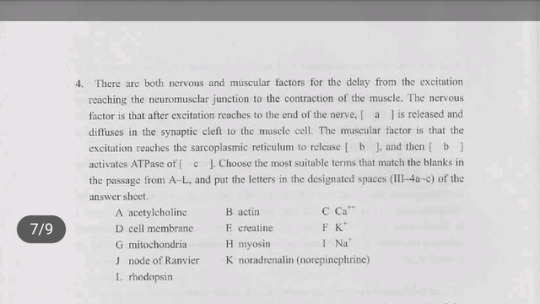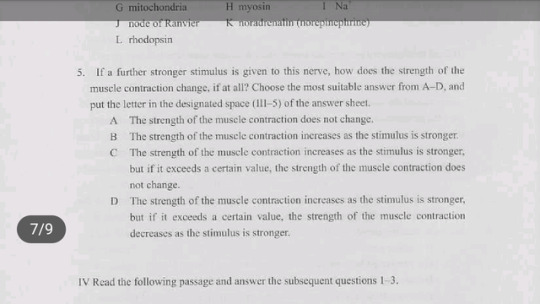#monbukagakusho
Text
The MEXT Scholarship Saga: Trials, Tribulations, and Triumphs.

The time of my departure is getting closer. The realization of this imminent change has not quite kicked in yet. My mind can't help re-living all the steps that helped me (almost) achieve part of my seventeen-year-old self's dream.
It all started in March 2022, with an hours-long session of random spiralling on YouTube. It began with an in-depth video on blue LEDs and landed on a video of a girl talking about her journey to Japan. That was the first time I'd ever heard about the MEXT (Monbukagakusho) scholarship: an extremely tempting opportunity to access advanced-level education granted by the Japanese Ministry of Education. This scholarship provides full tuition, a monthly stipend to cover living expenses, and round-trip airfare from your home country to Japan. Additionally, what particularly caught my interest was that Japanese proficiency was not mandatory for STEM-related subjects. In fact, it may include preparatory Japanese language courses if required.
However, at the time, I had no idea how intricate the matter actually was.
First, there isn't just one "MEXT scholarship." There's an "Undergraduate Students Scholarship" and a "Research Students Scholarship". As a Master's student eyeing a PhD, I naturally fell into the latter category. This was an extremely easy doubt to discern, unlike the next one.
Indeed, there are two different paths to winning the scholarship: the University route or the Embassy route. Basically, to win the grant from the government, the prospective student must obtain a recommendation from either a Japanese university or the Japanese embassy in their home country. The application procedures and timelines are completely different. The University route application generally starts in September/October, while the Embassy route begins in late March/April. As self-explanatory as it may seem, the University route entails contacting only one university that will select just a few candidates to recommend to the Japanese ministry. On the other hand, to be recommended by the embassy, the applicant must undergo a six-to-seven-month-long selection process.
Even though it still took me a considerable amount of time to make a decision, in reality, this choice was not particularly difficult. Not having a clear idea yet of where or what I wanted to study, the Embassy route would guarantee more time and freedom to choose the right university and professor. And to be honest, I mistakenly believed it would have been the less competitive option, underestimating the number of Italian applicants.
Indeed, one of the most disquieting things about the whole application has been the shortage of statistical information. For the embassy route, the number of slots available vary for each country and I couldn't find for the life of me neather the slots reserved for Italy (in hindsight I can say its 10 Research students) nor the number of italian applicants each year (I still don't know). Despite the long hours I spent online looking for even the smallest ounce of information, I could find just a bunch of testimonies from European applicants and nothing about Italy. The ministry doesn't share this type of information, therefore it mostly felt like a leap in the dark. Luckily, however, one of the first things that appear when googling "MEXT Scholarship" is Transenz's blog (aka my life saver). I don't think I could have successfully applied without the information and support he provided. Thanks to one of his articles I could grasp the whole process, which is quite long and cumbersome.
To be selected by the embassy the applicant must undergo two screenings and, according to the internet, the first one is the most competitive.
The first screening can be further divided into three steps:
Document Screening (the embassy checks all the provided documents and selects a first poll of applicants).
Written Test: Japanese and English language test.
Interview.
The candidates that pass this first screening must contact the universities/supervisors they'd like to work with and obtain a Letter of Provisional Acceptance. Once (or IF) obtained, it must be sent to the embassy and at that point, months of excruciating waiting begins.
The secondary screening is longer but less competitive. Apparently in this phase, the Japanese ministry checks all the documents and makes arrangements with the universities that provided the letter.
The complexity of the procedure could have been a deterrent, but in my case, it worked as an incentive. In my head, all the steps worked as a sort of pillow and helped postpone the task that I feared the most: LoA requests. Moreover, passing an initial screening would have given me more confidence in contacting prospective supervisors. I honestly thought that being selected by the embassy would have worked as a guarantee to have the professor's benevolence on joining their labs; which turned out to be completely false, but this is a story for later.
Before diving into the sea of forms and certificates, the first order of business was to check the eligibility requirements. One key detail that often gets overlooked is the GPA threshold. Although the official application guidelines from the ministry don’t state it explicitly, most Japanese universities apply an unofficial standard: your GPA should be above 2.30. It’s one of those behind-the-scenes requirements that can trip you up if you’re not careful.
Finding an attainable conversion scale for the Italian grading system was another challenge. After some digging, I discovered that locating a reliable conversion chart was quite tricky. Fortunately, a helpful comment from Transenz below one of his posts provided the exact scale I needed. This invaluable tip made it much easier to ensure my GPA met the unofficial requirement, saving me from potential headaches down the road.
Once understood the procedure and made sure I met the minimum requirements, it was time to craft the required documents. As stated in one of Tansenz's articles: "(The Research Proposal) is the single most important element that you have any control over." Thus, the first thing I did was focus on finding a research topic.
1 note
·
View note
Text
Will Social Standard Make Me Happy?
I will enter my 30 in the following weeks. People say time is running out for me to have my own child, my biggest dream since I was a kid. Really?
Since I was a kid, I have been an obedient kid along with my rebel look impression. I went to the junior high school my parents chose for me. I went to a quiet reputable public high school. In that high school also, I attempted a number of opportunity for student exchange and fail mostly in the last stage.
I took Cambridge International Examination, in order to get another opportunity to study overseas. I applied Turkiye Burslarie and Monbukagakusho even though I am not interested in both countries but I wanted to study overseas. Eventually, I studied in one of the top five public university not really far from home. I graduated on time with cum laude title, after a hard struggle for a year burying my dream to study master overseas, I work as a white collar worker in the most prestige central business district in the capital. That year; I have a kindhearted boyfriend, fun best friends, lots of new friends, and capital city lights blind my vision to my own dream.
In 2020, my relationship ended, my friends getting married and got busy with their own household, I got rejected by Chevening every year, stuck in my job-- I always got the lowest rank for the annual assessment no matter how hard I support my team. I started to questioning myself. What you're gonna do?
Being alone in this damn town is a hell. If I cried to God and did ta'aruf to start my own family, will it make me happy? Have a trophy husband, being a trophy wife, and raising babies, will it make me happy? Is that my goal in life? yes, maybe. Maybe. Maybe?
I thought I stole my mother dream, once I said to her when I was a kid, "my friend say people with index toes higher than the big toes have a high dream, what is your dream, mom?" My mom has higher index toes, anyway.
"Travel around the world." She said.
I did not really know what is that mean, but for me it was a huge and astonishing. Since then, I just knew that it is my dream too; I got a perfect score for Europe topic in geography when I was in elementary school and obtained above average in English. I put a high interest in ancient history and European language.
I have questions what is it like become my mom. Take care of the house, take care of my dad, take care of the rebel me, helped me prepare to be achieve the road as what society wants; which where I am now. Meanwhile she surpassed her dream to travel the world-- which I don't know it's a fake to motivate me or it is really her dream. Does she feel the alienation to be a housewife? In fact, as a corporate labour I already conscious with my alienation. I need tp pay my own bills.
Now I questioned myself about what to do next. Just picked a random guy and be a bride, fulfil the happiness determine by the social standard? Or being a wanderer? But how?
0 notes
Text
Du học Nhật Bản là một trong những lựa chọn hàng đầu của nhiều bạn trẻ Việt Nam hiện nay. Nhật Bản là một quốc gia có nền giáo dục phát triển, văn hóa đặc sắc và nền kinh tế mạnh mẽ. Tuy nhiên, du học Nhật Bản cũng không phải là chuyện đơn giản, bạn sẽ phải đối mặt với nhiều khó khăn và thách thức trong quá trình du học.
Vậy, đi du học Nhật Bản có tốt không? Bài viết này laodongjp sẽ giúp bạn phân tích ưu và nhược điểm của du học Nhật Bản theo các tiêu chí sau: giáo dục, văn hóa, việc làm, chi phí, ngôn ngữ và cuộc sống.
I. Giáo dục
Một trong những lý do chính khiến nhiều bạn trẻ muốn du học Nhật Bản là chất lượng giáo dục của xứ sở Phù Tang. Nhật Bản là một quốc gia có nền giáo dục phát triển hàng đầu thế giới, với hệ thống giáo dục kết hợp giữa phương Đông và phương Tây. Học sinh du học tại Nhật Bản sẽ được tiếp xúc với môi trường học tập chất lượng cao, trang thiết bị hiện đại và đội ngũ giáo viên chuyên nghiệp .
Nhật Bản cũng có nhiều trường học uy tín và danh tiếng, từ các trường cao đẳng, đại học cho đến các trường sau đại học. Một số trường học nổi tiếng của Nhật Bản là Đại học Tokyo, Đại học Kyoto, Đại học Osaka, Đại học Waseda, Đại học Keio và Đại học Sophia. Các trường học này không chỉ có chương trình đào tạo chất lượng cao, mà còn có cơ hội giao lưu và hợp tác với các trường học hàng đầu của thế giới.
Ngoài ra, du học Nhật Bản cũng là cơ hội để bạn có thể nhận được những học bổng và trợ cấp từ các trường và chính phủ Nhật Bản. Các loại học bổng và trợ cấp này sẽ giúp bạn giảm bớt gánh nặng về chi phí du học, cũng như khích lệ bạn cố gắng hơn trong việc học tập. Một số loại học bổng và trợ cấp phổ biến của Nhật Bản là: Học bổng Monbukagakusho (MEXT), Học bổng JASSO (Japan Student Services Organization), Học bổng JICA (Japan International Cooperation Agency) và Hỗ trợ sinh hoạt của các tỉnh thành.
Đi du học Nhật Bản có tốt không?
II. Văn hóa
Một lý do khác khiến nhiều bạn trẻ yêu thích du học Nhật Bản là văn hóa xứ sở Phù Tang. Nhật Bản là một quốc gia có văn hóa đa dạng, giàu sắc màu và có nhiều điểm thu hút. Du học Nhật Bản là cơ hội để bạn khám phá văn hóa Nhật Bản, với nhiều danh lam thắng cảnh, di tích lịch sử và nét đẹp truyền thống độc đáo. Bạn cũng có thể trải nghiệm văn hóa trà đạo, văn hóa samurai, ẩm thực Nhật Bản và nhiều hoạt động giải trí hấp dẫn .
Nhật Bản có nhiều địa danh nổi tiếng và đẹp mắt, từ các thành phố hiện đại như Tokyo, Osaka, Nagoya cho đến các vùng quê yên bình như Kyoto, Nara, Hokkaido. Bạn có thể chiêm ngưỡng những công trình kiến trúc độc đáo như Tokyo Skytree, Tokyo Tower, Cầu Cầu Vồng, Nhà hát Kabuki-za; những di sản văn hóa thế giới như Cung điện Hoàng gia Kyoto, Chùa Vàng Kinkaku-ji, Chùa Phật Todai-ji; những kỳ quan thiên nhiên như Núi Phú Sĩ, Hồ Biwa, Vườn quốc gia Fuji-Hakone-Izu.
Ngoài ra, bạn cũng có thể tìm hiểu về văn hóa truyền thống của Nhật Bản, với những nghi lễ và phong tục đặc trưng. Bạn có thể tham gia vào các lễ hội nổi tiếng như Lễ hội Hoa anh đào (Sakura), Lễ hội Mùa thu (Tsukimi), Lễ hội Đèn lồng (Obon); bạn cũng có thể học hỏi về các nghệ thuật truyền thống như Trà đạo (Sado), Hoa đạo (Kado), Thư pháp (Shodo); bạn cũng có thể thưởng thức các món ăn ngon và đặc sắc của Nhật Bản như Sushi, Ramen, Tempura.
Đi du học Nhật Bản có tốt không?
III. Việc làm
Một lý do quan trọng khác khiến nhiều bạn trẻ quyết định du học Nhật Bản là cơ hội việc làm của xứ sở Phù Tang. Do tình trạng già hóa dân số và thiếu nhân sự, Nhật Bản có nhu cầu cao về lao động có trình độ chuyên môn và tiếng Nhật. Bạn có thể tìm kiếm việc làm ngay tại Nhật sau khi tốt nghiệp hoặc trở về Việt Nam với bằng cấp và kinh nghiệm quý báu .
Nhật Bản là một trong những nền kinh tế lớn nhất thế giới, với nhiều ngành công nghiệp phát triển và tiên tiến. Bạn có thể tìm được việc làm trong các lĩnh vực như Công nghệ thông tin, Kỹ thuật, Y tế, Giáo dục, Dịch vụ, Du lịch và nhiều ngành khác. Mức lương của Nhật Bản cũng khá cao so với các nước khác, bạn có thể kiếm được từ 2000 đến 4000 USD mỗi tháng tùy theo kinh nghiệm và chuyên môn của bạn.
Ngoài ra, bạn cũng có thể làm việc thêm khi du học Nhật Bản để kiếm thêm thu nhập và rèn luyện kỹ năng. Bạn có thể làm việc trong các ngành như Nhà hàng, Khách sạn, Siêu thị, Tiệm cắt tóc, Nhà sách, Trường học và nhiều nơi khác. Bạn có thể kiếm được từ 800 đến 1200 yên mỗi giờ tùy theo loại công việc và thời gian làm việc của bạn.
Xem thêm: Nên đi du học hay xuất khẩu Nhật Bản?
IV. Chi phí
Một trong những khó khăn lớn nhất khi du học Nhật Bản là chi phí du học. Nhật Bản là một quốc gia có mức sống cao và chi phí sinh hoạt đắt đỏ.
Bạn và gia đình sẽ phải chi trả 100% chi phí du học nhật bản nếu không có học bổng hoặc trợ cấp từ các trường và chính phủ Nhật Bản .
Đi du học Nhật Bản có tốt không?
Theo thống kê của JASSO, chi phí du học Nhật Bản bao gồm:
Chi phí học tập: Tùy theo loại trường học, cấp độ học vấn và chương trình đào tạo, chi phí học tập của Nhật Bản có thể dao động từ 500.000 đến 1.500.000 yên mỗi năm. Các trường công lập thường có chi phí học tập thấp hơn các trường tư thục, các trường cao đẳng thường có chi phí học tập thấp hơn các trường đại học, và các chương trình tiếng Nhật thường có chi phí học tập thấp hơn các chương trình chuyên ngành.
Chi phí sinh hoạt: Tùy theo khu vực, loại nhà ở và lối sống của bạn, chi phí sinh hoạt của Nhật Bản có thể dao động từ 60.000 đến 150.000 yên mỗi tháng. Các khu vực thành thị như Tokyo, Osaka, Nagoya thường có chi phí sinh hoạt cao hơn các khu vực nông thôn như Kyoto, Nara, Hokkaido. Các loại nhà ở như Ký túc xá, Nhà trọ, Chung cư mini thường có chi phí thuê nhà thấp hơn các loại nhà ở như Nhà riêng, Căn hộ, Biệt thự. Các lối sống như Ăn uống tiết kiệm, Đi xe buýt, Mua sắm ít khi cần thiết thường có chi phí sinh hoạt thấp hơn các lối sống như Ăn uống xa xỉ, Đi taxi, Mua sắm thường xuyên.
Chi phí khác: Ngoài hai loại chi phí trên, bạn cũng cần tính đến các chi phí khác khi du học Nhật Bản như: Chi phí di chuyển (Vé máy bay, Vé tàu điện), Chi phí bảo hiểm (Bảo hiểm y tế, Bảo hiểm du lịch), Chi phí giấy tờ (Hộ chiếu, Visa, Giấy tờ nhập học), Chi phí giải trí (Du lịch, Xem phim, Đi chơi).
Tổng cộng, bạn sẽ cần khoảng từ 1.000.000 đến 2.500.000 yên mỗi năm để du học Nhật Bản. Đây là một con số không nhỏ và bạn cần chuẩn bị kỹ lưỡng về mặt tài chính trước khi quyết định du học Nhật Bản.
V. Ngôn ngữ
Một trong những yếu tố then chốt khi du học Nhật Bản là ngôn ngữ. Tiếng Nhật là một ngôn ngữ khó học, yêu cầu người học phải chăm chỉ và luyện tập mỗi ngày. Bạn sẽ phải dành nhiều thời gian để học tiếng Nhật ở các trường Nhật ngữ trước khi chuyển sang các trường cao đẳng hoặc đại học .
Tiếng Nhật có nhiều đặc điểm khác biệt so với tiếng Việt, như: Hệ thống chữ viết (Hiragana, Katakana, Kanji), Cấu trúc câu (Chủ - Tân - Động - Vị), Ngữ pháp (Thể lịch sự, Thể khiêm nhường, Thể tôn kính), Từ vựng (Từ Hán, Từ Nôm, Từ ngoại lai), Phát âm (Nguyên âm, Phụ âm, Âm điệu). Bạn sẽ phải học và nhớ hàng nghìn chữ Kanji, hàng trăm quy tắc ngữ pháp và hàng ngàn từ vựng để có thể giao tiếp tiếng Nhật thành thạo.
Ngoài ra, bạn cũng sẽ gặp nhiều khó khăn khi giao tiếp với người Nhật trong cuộc sống du học. Người Nhật có nhiều phong tục và tập quán khác với người Việt, như: Cách chào hỏi (Cúi đầu, Bắt tay, Ôm hôn), Cách nói chuyện (Dùng từ lịch sự, Tránh nói trực tiếp, Biểu lộ cảm xúc ít), Cách ăn uống (Dùng đũa, Nói itadakimasu và gochisousama, Không để thức ăn dư), Cách làm việc (Tôn trọng cấp bậc, Làm việc chăm chỉ, Tuân thủ quy định). Bạn sẽ phải thích nghi và tôn trọng văn hóa của người Nhật để có thể hòa nhập và được tôn trọng.
Đi du học Nhật Bản có tốt không?
VI. Cuộc sống
Một trong những thách thức lớn nhất khi du học Nhật Bản là cuộc sống du học sinh. Cuộc sống du học sinh tại Nhật Bản không phải là màu hồng như nhiều người tưởng tượng. Bạn sẽ phải tự lập, quản lý chi tiêu, đi làm thêm và giải quyết các vấn đề gặp phải trong cuộc sống hàng ngày. Bạn cũng cần cảnh giác với những người xấu có ý định lừa đảo hoặc trộm cắp của bạn .
Du
học Nhật Bản là một quá trình dài và khó khăn, bạn sẽ phải vượt qua nhiều khó khăn và cạm bẫy. Bạn sẽ phải tự mình lo lắng cho việc ăn ở, học tập, làm việc và giải trí của mình. Bạn sẽ phải biết cách quản lý chi tiêu hợp lý, không xa hoa hoặc lãng phí. Bạn sẽ phải biết cách tìm kiếm và chọn lựa công việc thêm phù hợp với khả năng và thời gian của mình. Bạn sẽ phải biết cách giải quyết các vấn đề như bị bệnh, bị tai nạn, bị mất đồ hoặc bị rắc rối với luật pháp.
Ngoài ra, bạn cũng sẽ gặp nhiều rủi ro và nguy hiểm khi du học Nhật Bản. Nhật Bản là một quốc gia có nhiều thiên tai như Động đất, Núi lửa, Sóng thần, Bão, Lũ lụt. Bạn sẽ phải biết cách phòng tránh và ứng phó với những tình huống khẩn cấp này. Bạn cũng sẽ phải cẩn thận với những người xấu có ý định lợi dụng hoặc hại bạn, như: Lừa đảo, Trộm cắp, Bắt cóc, Cưỡng bức. Bạn sẽ phải biết cách bảo vệ bản thân và tìm kiếm sự giúp đỡ khi cần thiết.
Xem thêm: Quy định làm thêm của du học sinh Nhật Bản
Kết luận
Như vậy, đi du học Nhật Bản có tốt không phụ thuộc vào nhiều yếu tố như mục tiêu, năng lực, ý chí và kỷ luật của bạn. Du học Nhật Bản có nhiều ưu điểm như: Chất lượng giáo dục cao, Văn hóa đa dạng, Cơ hội việc làm tốt. Nhưng du học Nhật Bản cũng có nhiều nhược điểm như: Chi phí du học cao, Ngôn ngữ khó học, Cuộc sống du học sinh khó khăn. Nếu bạn muốn theo đuổi con đường du học Nhật Bản, bạn cần chuẩn bị kỹ lưỡng về mặt tài chính, ngôn ngữ và tâm lý. Bạn cũng nên tìm hiểu thông tin kỹ càng về du học Nhật Bản từ các nguồn tin cậy và có sự tư vấn từ các chuyên gia du học. Chúc bạn thành công!
BÀI VIẾT ĐƯỢC QUAN TÂM
[block id="phan-chan-bai-viet"]
1 note
·
View note
Text
0 notes
Text
Cara daftar monbukagakusho
Berikut adalah langkah-langkah untuk mendaftar Beasiswa Monbukagakusho:
1. Memilih Program Studi: Pilih program studi yang ingin diambil di Jepang dan pastikan bahwa program studi tersebut tersedia dan diakreditasi oleh Pemerintah Jepang.
2. Persyaratan Umum: Pastikan bahwa Anda memenuhi persyaratan umum yang ditetapkan oleh Monbukagakusho, yaitu memiliki kewarganegaraan di negara yang memiliki hubungan diplomatik dengan Jepang, memiliki kesehatan yang baik, serta memiliki kemampuan Bahasa Inggris atau Bahasa Jepang yang cukup.
3. Mencari Informasi: Cari informasi tentang beasiswa Monbukagakusho dari situs web resmi Kedutaan Besar Jepang di negara Anda atau situs web resmi Monbukagakusho. Periksa juga tenggat waktu pendaftaran dan persyaratan aplikasi untuk program studi yang dipilih.
4. Mengisi Aplikasi: Unduh formulir aplikasi dari situs web resmi Monbukagakusho atau Duta Besar Jepang di negara Anda. Isi formulir aplikasi dengan benar dan lengkap, termasuk informasi personal, riwayat pendidikan, pengalaman kerja, dan rencana studi di Jepang.
5. Mengumpulkan Dokumen: Lampirkan dokumen-dokumen yang diminta, seperti transkrip nilai, sertifikat bahasa, rekomendasi dari dosen atau atasan, serta dokumen-dokumen pendukung lainnya.
6. Mengirim Aplikasi: Setelah mengisi formulir aplikasi dan mengumpulkan dokumen-dokumen, kirimkan aplikasi ke Kedutaan Besar Jepang di negara Anda atau lembaga yang ditunjuk.
7. Seleksi: Aplikasi akan dinilai oleh tim seleksi yang ditunjuk oleh Monbukagakusho. Pada tahap ini, Anda mungkin akan diminta untuk mengikuti tes tertulis atau wawancara.
8. Pengumuman Hasil: Setelah proses seleksi selesai, hasil seleksi akan diumumkan melalui situs web resmi Monbukagakusho atau Duta Besar Jepang di negara Anda.
9. Pendaftaran ke Perguruan Tinggi: Setelah dinyatakan lolos seleksi, Anda perlu mendaftar ke perguruan tinggi di Jepang yang telah disetujui oleh Monbukagakusho.
Harap diingat bahwa prosedur aplikasi dapat berbeda-beda tergantung pada jenis program studi dan negara asal Anda. Oleh karena itu, disarankan untuk mencari informasi lebih lanjut dari situs web resmi Monbukagakusho atau Duta Besar Jepang di negara Anda.
0 notes
Text
Tujuan Pramuka
Fungsi Pramuka
Setelah mengetahui apa tujuan Pramuka secara dasar yang berupa potensi-potensi yang ada pada individu, fungsi Pramuka penting pula untuk dikenali. Lebih lengkapnya, lihat beberapa poin-poin berikut:
Kegiatan yang membawa dampak positif. Fungsi pertama terletak pada kegiatan yang mendidik (tujuan secara sistematis), sehat sekaligus menyenangkan bagi anak-anak muda.
Bentuk pengabdian diri. Fungsi kedua terletak pada pengabdian diri diiringi keikhlasan hati dan kesukarelaan untuk menggapai tujuan yang disebutkan sebelumnya.
dan Sebagai alat organisasi. Fungsi terakhir tak lain adalah alat/media organisasi Kepramukaan guna memenuhi kebutuhan masyarakat tanah air di dalam perjalanannya (latihan berkala).
Baca Juga Beasiswa Monbukagakusho S2, Studi di Jepang Fully Funded
1 note
·
View note
Photo

MEXT can be applied in 2 ways in undergraduate and postgraduate; university recommendation and embassy selection. Here are the 5 steps to apply for an undergraduate or postgraduate embassy MEXT scholarship: 1. Check eligibility: Make sure you meet the eligibility criteria, such as age, educational background, and language proficiency of MEXT. 2. Check the Japan embassy website: Usually, around December to March of every year, the Japanese embassy or consulate will publish the MEXT embassy track application requirements. Check the conditions and manage all the documents. 3. Submit an application: Submit the required application materials, such as a personal statement, academic transcripts, and language proficiency test scores, to the Japanese embassy or consulate in your home country by the deadline. 4. Attend an exam or interview: Successful applicants may be required to attend an exam ir interview. 5. Receive results: The Japanese embassy or consulate will announce the selection process results. This picture was taken last year in Niigata. Niigata is a beautiful place in Japan, filled with heavy snow in winter and a beautiful climate in summer. When you're in Japan, pay a visit to Niigata! #mext #asiakakehashi #scholarship #beasiswajepang #beasiswa #studyabroad #beasiswas #toefl #afseffect #afsjapan #jepang #beasiswaluarnegeri #infobeasiswa #indonesia #exchangestudent #scholarships #japan #ielts #nihongo #aas #kuliahdijepang #wallerwelt #scholarshipopportunities #kuliahdiluarnegeri #monbukagakusho #tp #toeflitptest #kanji (at Niigata-shi, Niigata, Japan) https://www.instagram.com/p/CoFenILyPHR/?igshid=NGJjMDIxMWI=
#mext#asiakakehashi#scholarship#beasiswajepang#beasiswa#studyabroad#beasiswas#toefl#afseffect#afsjapan#jepang#beasiswaluarnegeri#infobeasiswa#indonesia#exchangestudent#scholarships#japan#ielts#nihongo#aas#kuliahdijepang#wallerwelt#scholarshipopportunities#kuliahdiluarnegeri#monbukagakusho#tp#toeflitptest#kanji
1 note
·
View note
Text
Sometimes I have a great obsession to rule the world. But all I wanna do is lying on my bed till the end of the day.
…
Alhamdulillah. Sudah dapet ijin dari suami untuk diperbolehkan mengejar cita-cita bersekolah hingga ke luar negeri. Setelah curhat panjang lebar dulu ga direstuin ibuk buat daftar beasiswa monbukagakusho.
But…
This is not only about my dream. Rafa and sultan must be my biggest consideration.
Boleh atau tidaknya mama adies sekolah jauh2 juga perlu ijin dari anak-anak. Ya nantilah dipikirkan kembali.
I would be happy even they say no because they need me around. And me too. I can’t get far away from my family.

0 notes
Note
hello hello~ I was wondering how you prepared for the qualifying exam for the MEXT scholarship? I'm going to try again next year and I really want to prepare as best as I can. Thank you!!
Hi! Thanks for the question.
I would say in general to focus on maths or sciences (if they apply to you) instead of trying to study Japanese. If you already know Japanese and wanna push it a bit, that’s ok. You have time to brush up your Japanese after you get accepted. But you should focus your time on the other subjects as they seem to weigh more. Especially so if you are not doing Humanities.
Obviously you would do the past year papers. I’ve heard the EJU syllabus is quite similar to the MEXT exams so you can check that out for math, science etc. The way they word the questions in math is a little different from my country so you kinda have to get used to that. Make sure you time yourself as well. I could do the math problems when I was practising but it didn’t occur to me that I had to complete the paper in an hour. I ended up barely finishing half the paper during the actual exam.Note: Score requirements differ from country to country and year to year.
The math only had blanks for final answers (we did hand in papers with our working on it but I doubt they marked that). Extrapolating from this system, it would maybe be a good strategy to focus on easy questions (like the first part of every question) and get as many answers correct in the limited time allocated rather than methodologically try to answer all the questions. But that depends on the mark allocation and your own way of doing things. Since only final answers are graded, careless mistakes can cost you everything! I was Humanities so I devoted all my time to math (English and Japanese weren’t a problem for me). Identify your weak points and work systematically towards fixing them. There are past year papers from 2010 on the internet floating around. The links I had are all broken now (sorry) but if you look hard enough I’m sure you’d find something.
I found resources and other people applying for the scholarship at this forum.
Good luck!
30 notes
·
View notes
Text
Life Updates!
So I haven’t posted anything in quite a while, and no one probably even follows me for updates but I have a few pretty big ones!
1: I graduated from college!!!!!!!!! I can finally call myself a chemical engineer! It’s taken so much time and energy and so many obstacles almost stopped me, but I finally did it!
2: I’ve applied to the MEXT Scholarship to try and start a research project in Japan, and maybe progress it into a Master’s or PhD program. I literally just submitted the application on Friday, but the website say they hope to have interviews and exam done 2 weeks later, so holy crap am I nervous! I hope I at least get an interview! Many people work on their applications for months, even a full year for this application, and I found out about it with only 3 weeks to get everything together, so I’ll be really happy just to get an interview.
I don’t know any Japanese really, so I’m also looking into summer courses and self-teaching workbooks to get me going in the mean time. If anyone has any recommendations I’d appreciate them! Also if anyone has ever gotten the MEXT scholarship I’d love to hear more about what happens and what your research was about!
2 notes
·
View notes
Text
Estudia gratis una carrera en Japón con esta beca
Ser un estudiante de excelencia, estar interesado en cursar una licenciatura completa en Japón, así como de aprender el idioma japonés y tener máximo 24 años al cierre de la convocatoria son algunos de los requisitos para aplicar por una de las becas MEXT.
Agencia Reforma
CIUDAD DE MÉXICO 28-Apr-2021 .- Ser un estudiante de excelencia, estar interesado en cursar una licenciatura completa en Japón, así como de aprender el idioma japonés y tener máximo 24 años al cierre de la convocatoria son algunos de los requisitos para aplicar por una de las becas MEXT.
Dichos apoyos cubren el 100 por ciento de los gastos de matrícula e incluyen un…

View On WordPress
0 notes
Photo




Anyone can tell me how to solve this ???
2 notes
·
View notes
Link
From the comments that we received from my previous two articles, it seems that many of you are actually thinking of coming to Japan for your studies. So, I thought I'd do an article to give you some advice on how to come to Japan for school. Hopefully this article will help you in your attempts to come to Japan and also help to reduce the number of emails on this subject that make their way into Koichi's inbox (he doesn't like so many emails).
The stuff that'll be in the article is only meant as a guide though – the information is only correct to the best of my information and that of the people I have asked. Different schools may have their own selection processes which are different from the norm. Similarly the application processes and how to get to Japan differ greatly between what you're also coming as – a university exchange student will have a very different process from someone coming for vocational training.
In this post I'm going to be focusing on how to get here on full length vocational training and/or university courses. I won't be looking at exchange programs since that sort of information depends on an each individual institution (please talk to your guidance counselors for more information). On the topic of going to Japan for full length courses there is very little information to go on, so I hope to fill that hole just a little bit.
Read more!
#college in japan education#monbukagakusho#monbusho#tofugu#study in japan#living in japan#college in japan#scholarship
150 notes
·
View notes
Text
Beasiswa jepang
Terdapat beberapa beasiswa yang dapat dipakai untuk melanjutkan studi di Jepang, di antaranya:
1. Beasiswa Monbukagakusho (MEXT) Scholarship: merupakan beasiswa penuh yang disediakan oleh Pemerintah Jepang melalui Kementerian Pendidikan, Budaya, Olahraga, Sains, dan Teknologi (MEXT) Jepang. Beasiswa ini ditujukan untuk mahasiswa dari seluruh dunia yang ingin menimba ilmu di perguruan tinggi di Jepang. Beasiswa ini mencakup biaya studi, biaya hidup, tiket pesawat PP, dan asuransi kesehatan.
2. Beasiswa JASSO Scholarship: merupakan beasiswa yang disediakan oleh Japan Student Services Organization (JASSO) untuk mahasiswa internasional yang mengalami kesulitan keuangan. Beasiswa ini mencakup biaya studi, biaya hidup, dan asuransi kesehatan.
3. Beasiswa Asia Pacific University (APU) Scholarship: merupakan beasiswa yang disediakan oleh Asia Pacific University (APU) Jepang untuk mahasiswa internasional yang ingin menimba ilmu di perguruan tinggi tersebut. Beasiswa ini mencakup biaya studi dan biaya hidup.
4. Beasiswa Rotary Yoneyama Memorial Scholarship: merupakan beasiswa yang disediakan oleh Yoneyama Memorial Foundation untuk mahasiswa internasional yang ingin melanjutkan studi di Jepang. Beasiswa ini mencakup biaya pendidikan, biaya hidup, dan tiket pesawat PP.
Terdapat juga beberapa beasiswa lainnya yang dapat dipakai untuk melanjutkan studi di Jepang, seperti beasiswa dari universitas tertentu atau program beasiswa dari perusahaan. Namun, persyaratan dan prosedur aplikasi dapat berbeda-beda tergantung pada jenis beasiswa yang dipilih. Oleh karena itu, disarankan untuk mencari informasi lebih lanjut tentang persyaratan dan prosedur aplikasi dari situs web resmi penyedia beasiswa atau menghubungi lembaga penyedia beasiswa tersebut.
0 notes
Text
Japanese Government (Monbukagakusho) MEXT Scholarships 2022 Fully Funded for undergraduate and research -Travel and Study in Japan
Japanese Government (Monbukagakusho) MEXT Scholarships 2022 Fully Funded for undergraduate and research -Travel and Study in Japan
Japanese Government (Monbukagakusho) MEXT Scholarships 2022
Application Deadline: Varying by Country
The Embassy of Japan offers Japanese Government-Sponsored MEXT (Ministry of Education, Culture, Sports, Science and Technology) Scholarship every year. MEXT scholarship supports foreign students who study in higher education institutions, selected on the recommendation of the Embassy.The…

View On WordPress
#Fully Funded for undergraduate and research#Japanese Government (Monbukagakusho) MEXT Scholarships 2022#Travel and Study in Japan
2 notes
·
View notes
Text
Japanese Government (Monbukagakusho: MEXT) Scholarships 2021
Japanese Government (Monbukagakusho: MEXT) Scholarships 2021
Japanese Government (Monbukagakusho: MEXT) Scholarship of Embassy Recommendation is now open for 2022.
Application Deadline: Varies (see below)
Type: Undergraduate, Masters, PhD, Training
Eligibility: Before inquiring the Japanese Embassy/consulate, please take a moment to read the basic eligibility thoroughly.
Eligible Countries:
College of Technology students
Benin 28 May
Cabo Verde 31…

View On WordPress
0 notes